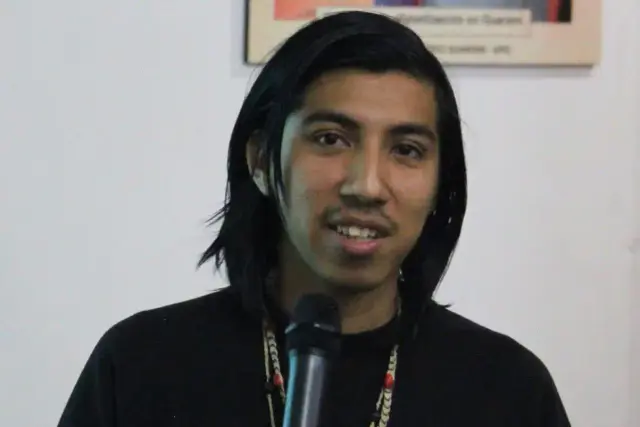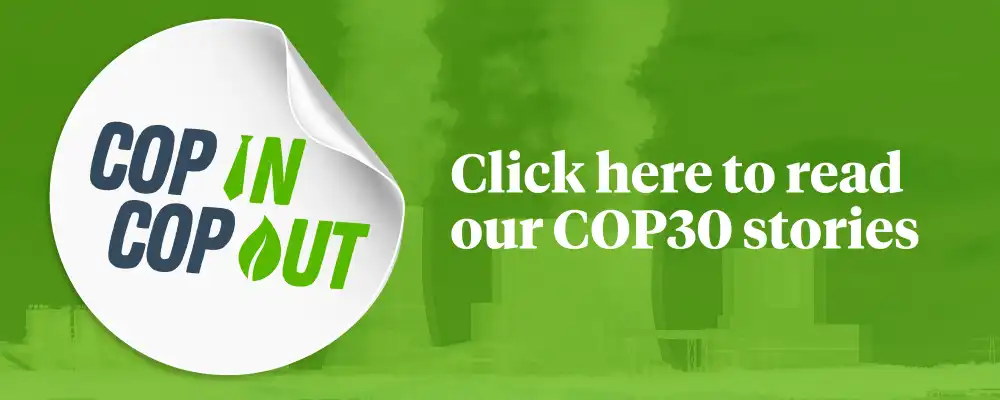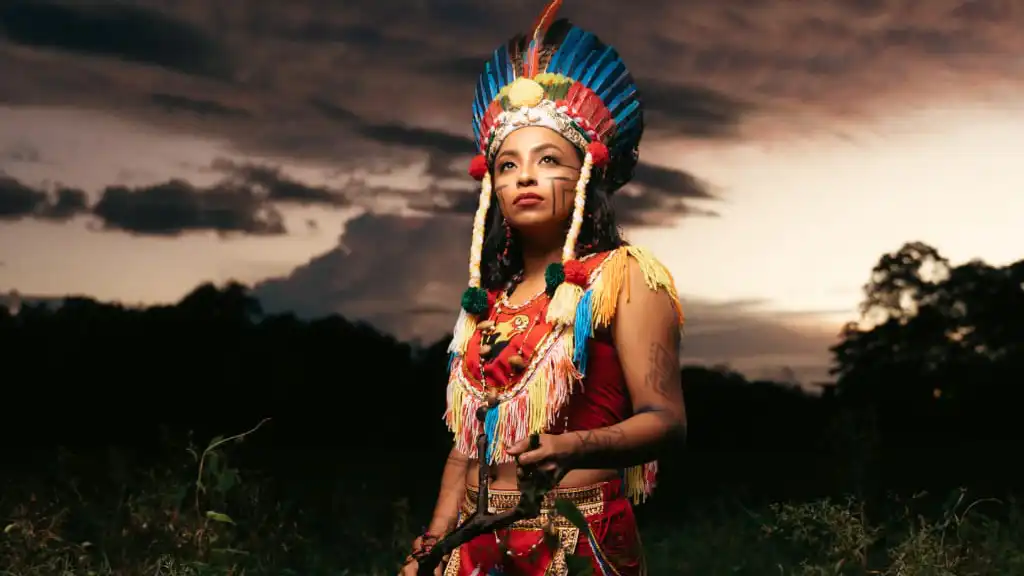“We have the solution”
It’s often said that Indigenous people are “the best guardians of the forest”, a phrase popularised by a 2021 UN report. Research certainly shows that deforestation rates are lower in areas they inhabit. Many of those we interviewed spoke powerfully about how they hold important knowledge and solutions to the climate crisis.
But the “guardians” phrase angered some. Wilfredo Tsamash Cabrera, in Peru, called it an insult. “Look, I’m not anyone’s pet,” he said. “I don't agree with that term.” And Jamner Manihuari, also in Peru, said “We are not anyone’s pawns to act as ‘guardians’. We are the owners of our territory.”
Some even laughed when asked if this idea translates into meaningful support. Onel Masardule from the Guna people in Panama said treating Indigenous people as guardians is no good without giving them the necessary tools.
So what does meaningful support look like? For many, it’s formally recognising their territorial rights so that they can continue to sustain the forest through traditional knowledge, thus regulating the climate. Several raised the need for direct funding to keep protecting and preserving forests.
Some raised the need to curb polluting and destructive industries and rein in overconsumption by non-Indigenous people. Beyond this, humanity must shift its collective mindset when it comes to development, Lizardo Cauper Pezo in Peru said, rethinking it as something that doesn’t exploit natural resources.
Indigenous people alone cannot solve the climate crisis. Responsibility to act, they told us, must lie with those most responsible for causing it. Nardy Velasco Vargas, from the Chiquitano people in Bolivia, said: “It seems that we, as indigenous peoples, are being left with the entire burden of saving the planet.”
However, many saw Cop30 being held on the edge of the Amazon as an opportunity. “This time it’s in the Amazon, in this sacred territory, in the forest that has enormous importance for the world, for Brazil and for Indigenous peoples,” said Maickson Pavulagem. “I believe that if Cop30 learns from the traditional peoples of the Amazon, we will take a very important step toward a climate solution.”


























